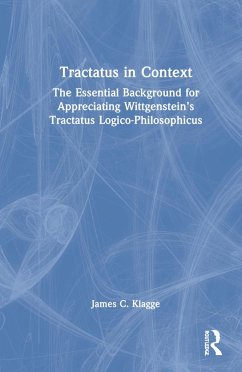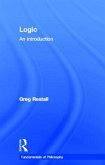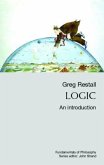Ludwig Wittgenstein's brief Tractatus Logico-Philosophicus (1922) is one of the most important philosophical works of the twentieth century, yet it offers little orientation for the reader. The first-time reader is left wondering what it could be about, and the scholar is left with little guidance for interpretation. In Tractatus in Context, James C. Klagge presents the vital background necessary for appreciating Wittgenstein's gnomic masterpiece. Tractatus in Context contains the early reactions to the Tractatus, including the initial reviews written in 1922-1924. And while we can't talk with Wittgenstein, we can do the next best thing-hear what he had to say about the Tractatus. Klagge thus presents what Wittgenstein thought about germane issues leading up to his writing the book, in discussions and correspondence with others about his ideas, and what he had to say about the Tractatus after it was written-in letters, lectures and conversations. It offers, you might say, Wittgenstein's own commentary on the book. Key Features: Illuminates what is at stake in the Tractatus, by providing the views of others that engaged Wittgenstein as he was writing it. Includes Wittgenstein's earlier thoughts on ideas in the book as recorded in his notebooks, letters, and conversations as well as his later, retrospective comments on those ideas. Draws on new or little-known sources, such as Wittgenstein's coded notebooks, Hermine's notes, Frege's letters, Hänsel's diary, Ramsey's notes, and Skinner's dictations. Draws connections between the background context and specific passages in the Tractatus, using a proposition-by-proposition commentary.
Hinweis: Dieser Artikel kann nur an eine deutsche Lieferadresse ausgeliefert werden.
Hinweis: Dieser Artikel kann nur an eine deutsche Lieferadresse ausgeliefert werden.
"This book will surely become one of the first sources that many people consult when working on the Tractatus, whether as students or as scholars. It is likely to be regarded as essential reading . . . . An extremely welcome and useful resource. After the Tractatus itself, it is the first place to look when seeking understanding of anything within that text. . . . Tractatus in Context is an invaluable aid for anyone seeking to make up their mind about this and other questions about that difficult book."
Duncan Richter in Philosophical Investigations
"Klagge's book is a feat of an accomplished archaeologist. This metaphor seems to be the most adequate comparison to highlight two striking features of his book's achievements. The first is that he did a real excavation to uncover the hidden intricacies of the complex structure that Wittgenstein assembled for the first time; the second is that this excavation aspires to re-establish the historical conditions of the construction."
João José R.L. de Almeida in Wittgenstein Studien
"[presents] a wealth of information that helps unpack what Wittgenstein was working on before he enlisted in the army and how this eventually finds expression in the rarefied statements that make up the Tractatus. It is especially good at showing how Frege and Russell charted a course that the Austrian soldier continued to follow during his years of military service."
Sean Sheehan in Dublin Review of Books
"A masterpiece of scholarship and insight"
Anthony Gottlieb
"Wittgenstein knew that the Tractatus was a difficult book. Indeed, he thought it would be impossible to understand unless he provided an accompanying verbal explanation, line by line. In this book Klagge has done us the remarkable service of reconstructing something of what Wittgenstein's verbal explanation might have been. By gathering Wittgenstein's scattered remarks on the various Tractatus passages, from his notebooks, lectures, and conversations with students and friends - some of them previously unpublished - and by assembling many of the more obscure texts to which Wittgenstein was responding, we can now read the Tractatus with the closest available approximation to Wittgenstein's own auto-commentary. This is a phenomenal scholarly achievement, and should be the companion volume from which all future readings of the Tractatus begin."
Gabriel M. Citron, Princeton University, USA
"Klagge's Tractatus in Context provides a personalised tour of Wittgenstein's first published work through a treasure trove of material - including diary entries, correspondence, related philosophical discussions, historical context, anecdotes, and comparisons with earlier drafts, later writings, the German-English translations, and, finally, its reception in the philosophical community. Throughout this journey, Klagge guides the reader through the material with his own expertise and wit, from his careful elucidation of the technical mathematical material to the more mystical passages at the end. Documenting every step with extensive footnotes, Klagge has produced what will become required research material for upper division undergraduate and graduate students and sought after by scholars, teachers, students and admirers of Wittgenstein. 45 years in the making, this book is a monumental addition to Wittgenstein Studies."
Julia Tanney
"This commentary reveals the chorus of voices who either left their imprint on Wittgenstein's text, or took their cue from it. Informative, stimulating, and entertaining all at once."
Alfred Nordmann, Technical University of Darmstadt, Germany
Duncan Richter in Philosophical Investigations
"Klagge's book is a feat of an accomplished archaeologist. This metaphor seems to be the most adequate comparison to highlight two striking features of his book's achievements. The first is that he did a real excavation to uncover the hidden intricacies of the complex structure that Wittgenstein assembled for the first time; the second is that this excavation aspires to re-establish the historical conditions of the construction."
João José R.L. de Almeida in Wittgenstein Studien
"[presents] a wealth of information that helps unpack what Wittgenstein was working on before he enlisted in the army and how this eventually finds expression in the rarefied statements that make up the Tractatus. It is especially good at showing how Frege and Russell charted a course that the Austrian soldier continued to follow during his years of military service."
Sean Sheehan in Dublin Review of Books
"A masterpiece of scholarship and insight"
Anthony Gottlieb
"Wittgenstein knew that the Tractatus was a difficult book. Indeed, he thought it would be impossible to understand unless he provided an accompanying verbal explanation, line by line. In this book Klagge has done us the remarkable service of reconstructing something of what Wittgenstein's verbal explanation might have been. By gathering Wittgenstein's scattered remarks on the various Tractatus passages, from his notebooks, lectures, and conversations with students and friends - some of them previously unpublished - and by assembling many of the more obscure texts to which Wittgenstein was responding, we can now read the Tractatus with the closest available approximation to Wittgenstein's own auto-commentary. This is a phenomenal scholarly achievement, and should be the companion volume from which all future readings of the Tractatus begin."
Gabriel M. Citron, Princeton University, USA
"Klagge's Tractatus in Context provides a personalised tour of Wittgenstein's first published work through a treasure trove of material - including diary entries, correspondence, related philosophical discussions, historical context, anecdotes, and comparisons with earlier drafts, later writings, the German-English translations, and, finally, its reception in the philosophical community. Throughout this journey, Klagge guides the reader through the material with his own expertise and wit, from his careful elucidation of the technical mathematical material to the more mystical passages at the end. Documenting every step with extensive footnotes, Klagge has produced what will become required research material for upper division undergraduate and graduate students and sought after by scholars, teachers, students and admirers of Wittgenstein. 45 years in the making, this book is a monumental addition to Wittgenstein Studies."
Julia Tanney
"This commentary reveals the chorus of voices who either left their imprint on Wittgenstein's text, or took their cue from it. Informative, stimulating, and entertaining all at once."
Alfred Nordmann, Technical University of Darmstadt, Germany








